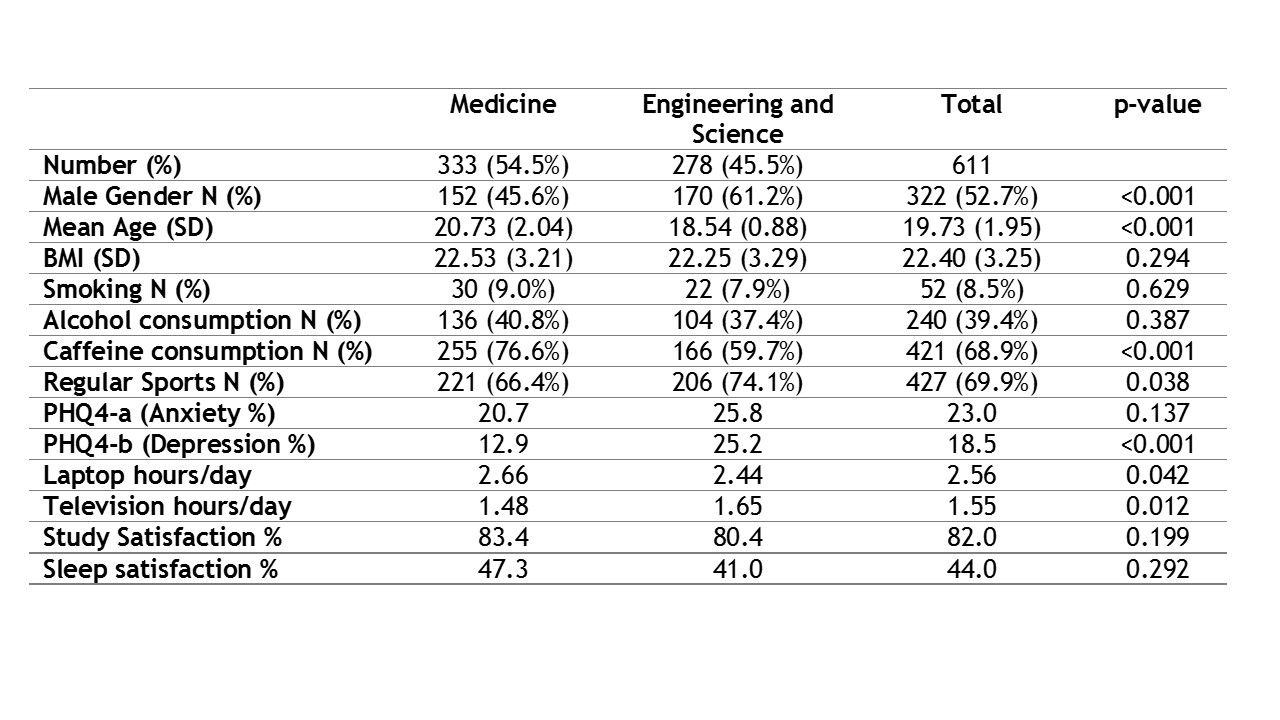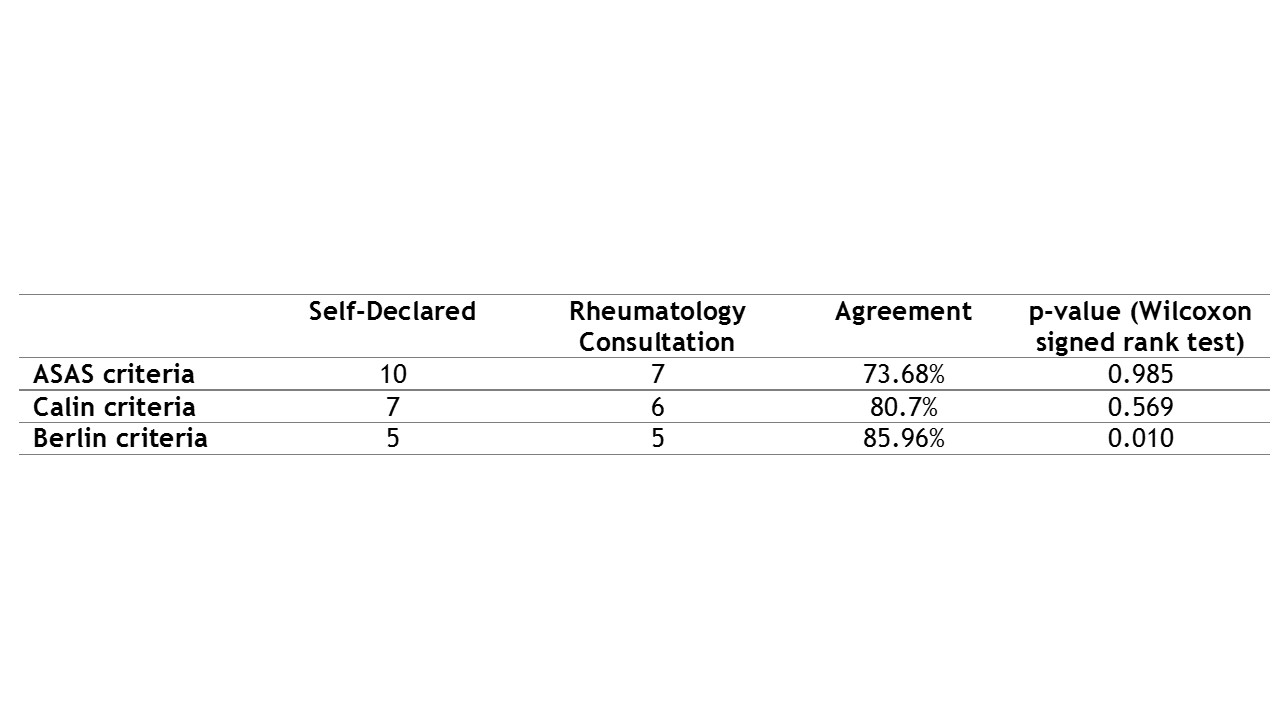Session Information
Date: Monday, November 6, 2017
Title: Spondyloarthropathies and Psoriatic Arthritis – Clinical Aspects and Treatment Poster II
Session Type: ACR Poster Session B
Session Time: 9:00AM-11:00AM
Validation of self-reported inflammatory back pain score compared to rheumatology consultation in university students
Background/Purpose: Low Back Pain (LBP) is a major public health problem affecting all ages, mostly young adults. University students may be vulnerable due to sedentary lifestyle and high stress levels. LBP is usually self-limited but a small proportion may have inflammatory back pain (IBP), a cornerstone symptom of axial spondyloarthritis, often overlooked. The objective of the study is to test an auto-questionnaire for IBP screening in educated young individuals, compared with the rheumatologist consultation as gold standard.
Methods: University students of three faculties (Medicine, Engineering and Sciences at Saint-Joseph University) were invited to respond to an auto-questionnaire about the presence and characteristics of LBP. Items related to IBP from the ASAS, Calin and Berlin criteria were collected. The students were then invited to a rheumatology consultation. Correlations between IBP score according to ASAS, Calin and Berlin criteria were studied between the auto-questionnaire and the rheumatology consultation.
Results: 611 students completed the auto-questionnaire (66.5%). 154 (25.2%) gave their consent to be contacted, 85 (55.2%) could be reached for consultation at the time of this report. Responders differed from non-responders by LBP (presence), age (older), BMI (higher), year of study (higher), habits such as smoking, alcohol consumption, caffeine consumption and sports activities (higher). 44% of students reported having at least one LBP episode during the past year (59.5% in medicine vs 25.5% in others, p<0.001). LBP correlated with specialty, caffeine consumption, sleep hours, walking when studying and anxiety in multivariate analysis. 8.6% of LBP were chronic, 84.8% were recurrent (>2/year) and 31.6% were highly recurrent (>4/year). IBP was found in 17.5% (ASAS), 12.3% (Calin) and 8.8% (Berlin) of interviewed LBP. The correlation with the medical interview was acceptable, with agreement ranging from 73.68 to 85.96%.
Conclusion: LBP is more frequent in medical university students compared to others. The correlation between the auto-questionnaire and the rheumatology consultation was acceptable, which makes the auto-questionnaire a suitable screening tool in educated individuals.
Table 1. Participants characteristics and habits, per specialty.
Table 2. Low Back Pain scores, compared between self-declaration and rheumatology consultation (in 57 interviewed LBP)
To cite this abstract in AMA style:
Ziade N, Fayad F, el-Khoury L. Validation of Self-Reported Inflammatory Back Pain Score Compared to Rheumatology Consultation in University Students [abstract]. Arthritis Rheumatol. 2017; 69 (suppl 10). https://acrabstracts.org/abstract/validation-of-self-reported-inflammatory-back-pain-score-compared-to-rheumatology-consultation-in-university-students/. Accessed .« Back to 2017 ACR/ARHP Annual Meeting
ACR Meeting Abstracts - https://acrabstracts.org/abstract/validation-of-self-reported-inflammatory-back-pain-score-compared-to-rheumatology-consultation-in-university-students/


